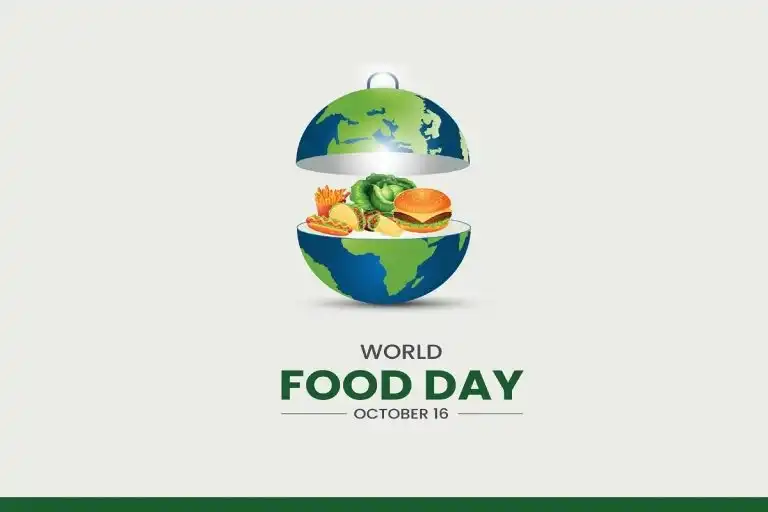Date: October 16

World Food Day is observed annually to raise awareness about the importance of nutrition and food security. It is a day to reflect on the issues surrounding hunger, malnutrition, and food sustainability worldwide.
Why this day matters
- Over 820 million people worldwide suffer from hunger, despite the abundance of food produced globally.
- Malnutrition, both undernutrition and overnutrition, affects billions of people, leading to health problems such as stunting, obesity, and heart disease.
- Poor diet is a leading cause of preventable diseases and premature death.
- Food production has a significant environmental impact, contributing to climate change, deforestation, and loss of biodiversity.
- The COVID-19 pandemic exacerbated food insecurity, particularly in low-income communities.
What you risk with poor nutrition
- Increased risk of chronic diseases like heart disease, diabetes, and cancer
- Weakened immune system and higher susceptibility to infections
- Poor cognitive development in children due to malnutrition
- Increased healthcare costs due to diet-related diseases
- Negative impacts on physical and mental well-being, including low energy and mood imbalances
What you gain with better nutrition
- Improved immune function and better resistance to diseases
- Healthy weight and reduced risk of chronic diseases
- Enhanced mental clarity and cognitive function
- Stronger bones, muscles, and joints
- Increased energy levels, better sleep, and improved mood
Ask yourself
- Are you getting enough fruits, vegetables, and whole grains in your diet?
- Do you rely heavily on processed and fast foods?
- Are your children eating a balanced diet that supports their growth and development?
- Are you mindful of how food choices impact your health and the environment?
If you answer “no” to any of these questions, today is the day to make a positive change for your health and well-being.
How to take action
- Consult a nutritionist or dietitian for personalized advice on how to improve your eating habits.
- Replace sugary snacks with healthier options like fruits, nuts, and whole-grain snacks.
- Make an effort to incorporate more plant-based meals into your diet.
- Educate yourself and your family about portion control and the importance of balanced meals.
- Support local farmers and sustainable food systems that promote healthy and environmentally friendly food production.
How you can help others
- Educate others on the benefits of eating nutritious food and the risks of poor diet.
- Volunteer at local food banks or nutrition programs that provide healthy meals to communities in need.
- Share healthy recipes and food tips on social media to inspire others to make better food choices.
- Support initiatives that aim to reduce food waste and improve food access for marginalized communities.
Good nutrition is the foundation of good health. By making healthier food choices, you can improve your life and help create a world where everyone has access to nutritious food.
You have the power to make a difference today. Choose to nourish your body and mind with wholesome food.